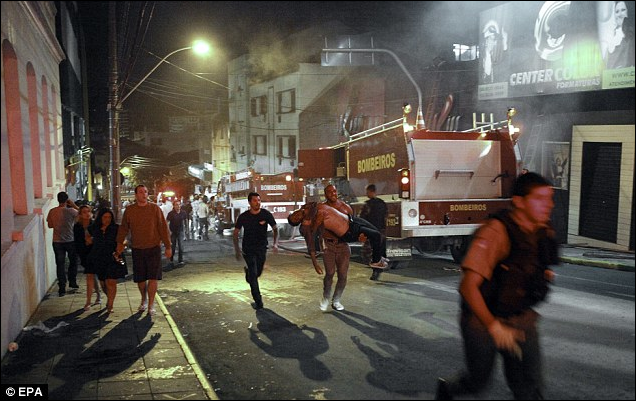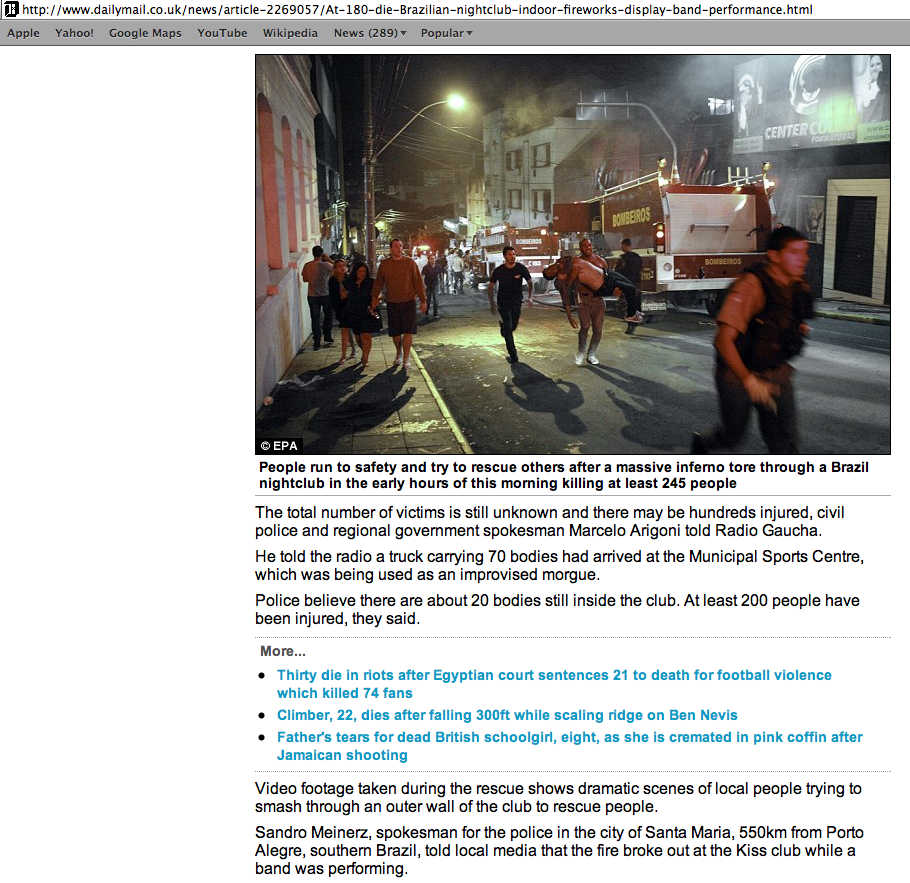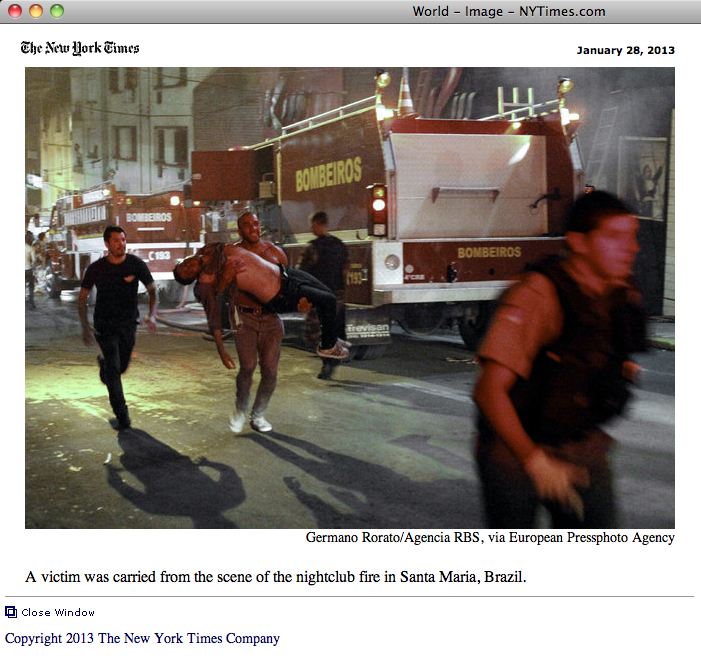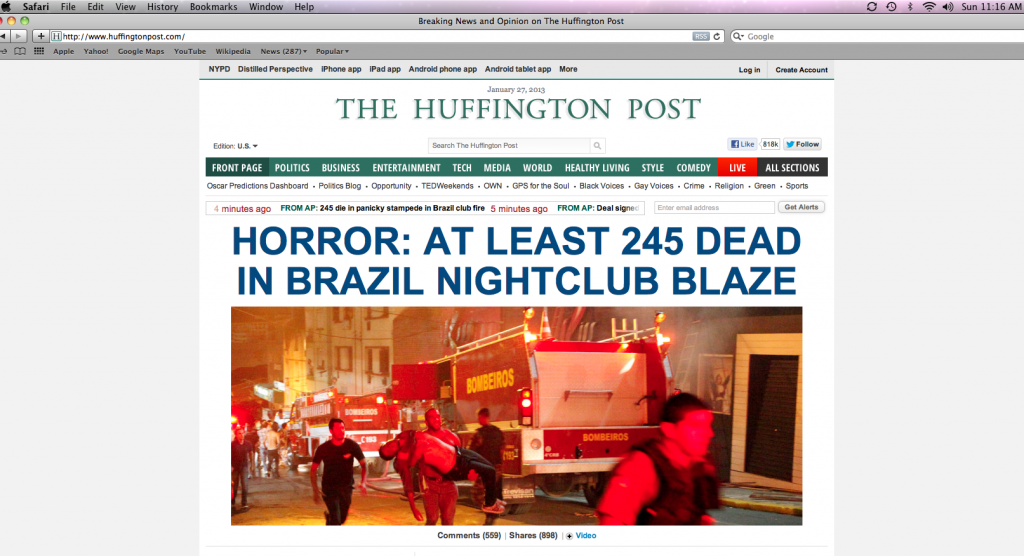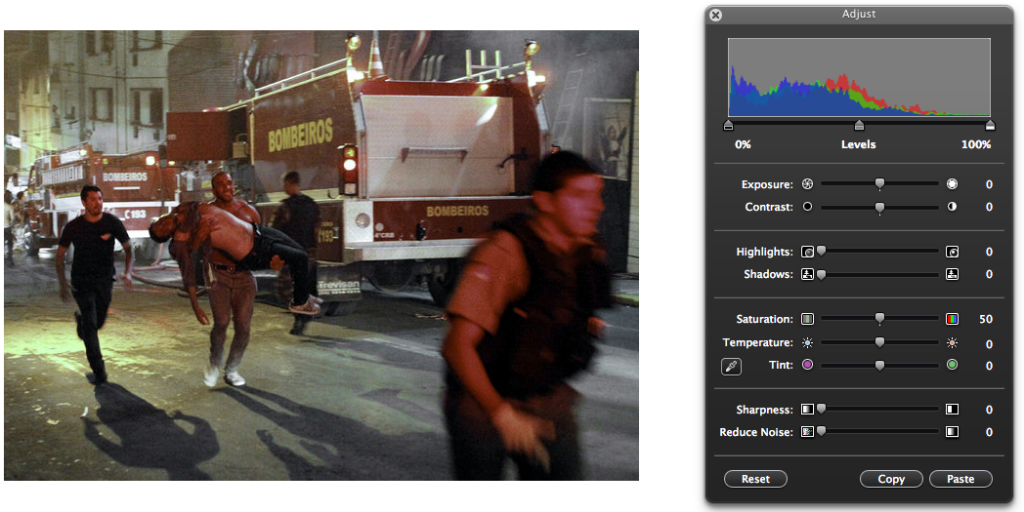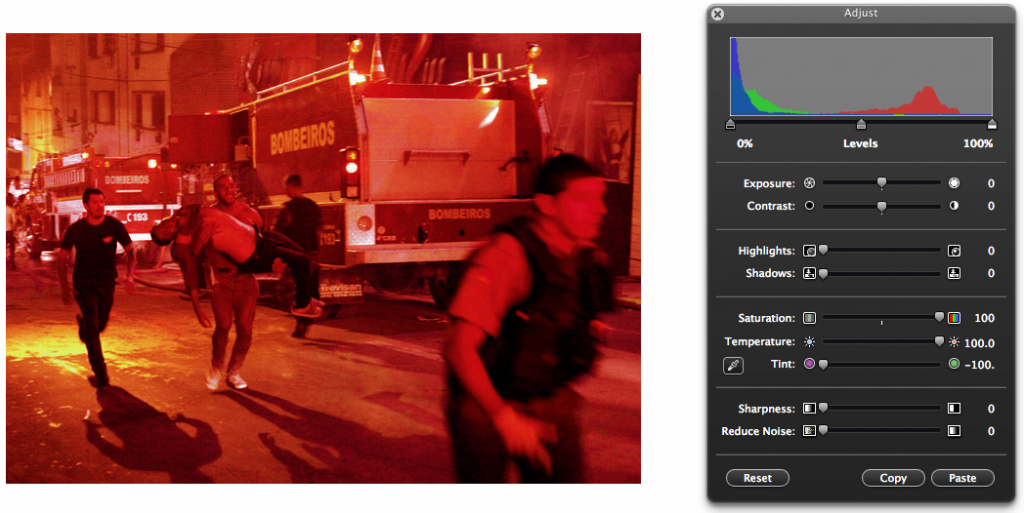.
The human interest story that’s headlining the news this morning is a nightclub fire in Santa Maria, Brazil. Several hundred persons are dead.
Whenever there is a tragedy of this magnitude it is the sad but necessary duty of journalism to converge on a single photo to illustrate the event. In this event the media quickly anointed a picture with iconic status (attribution: Germano Rorato/Agencia RBS, via European Pressphoto Agency (EPA); AP; and Reuters).
.
.
It is a photo taken on the street outside the club, showing fire trucks and rescue workers and other people milling about. The night sky is hazy, and we correctly read this not as mist but as smoke from the nearby fire. Here is how the photo is presented on the website of the Daily Mail.
.
.
The same picture, but this time in a cropped version, can be seen on the website of The New York Times.
.
.
Someone, presumably an editor at the NYT, chose to zoom in on the central tableau, cropping the photo’s left side, eliminating our view of the sidewalk and pedestrians, setting aside the direct glare of the overhead street light, and also trimming the remaining three borders. The reason for this is not hard to understand and appreciate. The focus of the scene, and what must have caught the photographer’s eye, is an anguished man carrying the prostrate body of a victim. Their vertical and horizontal forms create a cross, the pose of a Pieta. Although it is important for the record — for context, for history — to note that this picture is a detail of a slightly broader perspective captured by the photographer, Germano Rorato, I don’t think anyone can argue against this being a legitimate editorial choice. The fact that the picture’s composition arguably has been improved is not as important as this key observation: the reality of the moment remains undisturbed.
Other media outlets covering the tragedy apparently felt the original photo, in its entirety or cropped to its central focus, was not quite — how to put this? — not quite hellish enough. And so, at some stage in the chain of custody the photo was altered. There was some person or persons associated with the profession of journalism who made a decision to pump up the horror and pass their altered version off on the public at large. How? Easy.
Pretend you’re the lighting director at the Grand Guignol. Throw some switches and wash the scene with lurid red. There, that does the trick.
Here’s how the photo appeared this morning on the Huffington Post, the Drudge Report, and the Washington Post.
.
.
.
.
There’s a phrase used in the media to advise against imitating a dangerous activity: “Don’t try this at home!” Yet on this occasion, in this heyday of digital manipulation, the keys to altered reality are not in the exclusive possession of the media. You can try this at home, under safe conditions. Just fire up your favorite photoshopping tool and, after just a few adjustments — Voilà! — you’ve successfully followed the lead of journalists into Hades.
In the example below, I started with the photo as cropped by The New York Times. I color-adjusted it in the crudest way possible on three scales: I increased Saturation to 100 from 50, raised the Temperature to 100 from zero, and shifted Tint all the way left to red.
.
.
.
UPDATE 02-03-2013
An artificially pumped-up hellish version of the photo (an expert’s manipulation finer than my effort) has become the officially archived memento of the event in The Daily Beast‘s gallery slideshow of “Deadly Nightclub Fires“:
.
.
Oh, what the hell, let me try to match it, once again using as a starting point the cropped original photo that appeared in the NYT, then playing with Exposure, Contrast, Saturation, and Reduce Noise. How about this?
.
.
